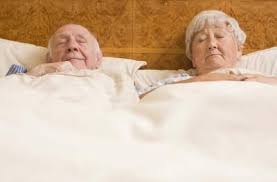 It seems you can’t talk with anyone about aging these days without the subject of cognitive health or dementia coming up at some point. People fear dementia more than dying itself, and yet most individuals who are “of an age” are probably not doing the one thing they should really be doing and doing it correctly for their brain’s sake.
It seems you can’t talk with anyone about aging these days without the subject of cognitive health or dementia coming up at some point. People fear dementia more than dying itself, and yet most individuals who are “of an age” are probably not doing the one thing they should really be doing and doing it correctly for their brain’s sake.
Bring up cognitive decline or dementia and medical professionals may talk about what’s in the biopharma pipeline. The government web site that tracks all of the clinical research on cognition shows more than 60 studies presently in progress and studies on Alzheimer’s Disease number nearly 2,700. While no one has yet tapped into what can truly become the pill or infusion that will change the course of cognitive decline as we age, I’m confident that we will find not just one way, but likely multiple ways to positively influence the memory of the aging brain.
In fact, there’s one thing we all can do – and it doesn’t require any work – to improve our cognitive function at almost any age. In fact, it’s almost the opposite of the definition of work; it’s simply sleep. But it’s also the right kind of sleep that will delay cognitive decline and keep our faculties sharper.
How much? Any of you who have raised kids know that in their pre-teens kids sleep inordinately long…and seemingly easily. For this age group, 9 to 12 hours is the requisite recharging time required to both function well the next day and to grow their rapidly changing bodies. The teen years reduce this demand a bit to about 8 to 10 hours of solid sleep for healthy functioning. Adults require less overall…usually about 7 hours or so does the trick, and substantially longer can even be a negative indicator of some health or breathing issues. But it’s not just the number of hours one sleeps as an aging adult; it’s how one sleeps.
What quality? Waking too often or for too long throughout the sleep cycle interferes with the quality of sleep. Steps to mitigate either sleep apnea or trips to the bathroom need to be taken in order to have a truly restful night. And there are four stages of sleep that are necessary for a night of slumber to be restorative, and each of these stages total about ninety minutes from start to finish.
The body relaxes and slows in stages one and two with both breathing and heart rate diminishing their rhythms to prepare for the next two stages. In stage three, referred to as the delta or “slow-wave sleep,” the brain does its after-hours repair work on the toll that a day’s living has taken on the body. The next stage is most important for cognition and brain health as we dream and sort through the day’s information and organize it in the brain. We all have heard about this stage, the rapid eye movement or REM stage, and we all will go through about four cycles of REM before our night is done in order to have an optimal night’s sleep.
So, how do you go about getting the best out of your sleep? Everyone will find their own preparation for sleep – maybe a warm bath, meditation, or a relaxing bedtime routine. Laptops and smartphones – blue lights! – are hyper-stimulating, so absolutely no! And spicy or fatty or hot food is also a distraction from quality sleep – no! And what used to be called a night cap (alcoholic beverage) is the farthest thing from what you should consume before sleep – no!. Read a book, yes, but don’t scare yourself with a thriller. Speaking of reading, remember that fairy tale about Goldilocks and the three bears? You should also be looking for a good rest that comes from a happy medium in your sleep habits…one that is “just right.”
Charlotte Bishop is a Caregiver Coach, an Aging Life Care Advisor, a Geriatric Care Manager and founder of Creative Care Management, certified professionals who are geriatric advocates, resources, counselors and friends to older adults and their families in metropolitan Chicago. She also is the co-author of How Do I Know You? A Caregiver’s Lifesaver for Dealing with Dementia.





